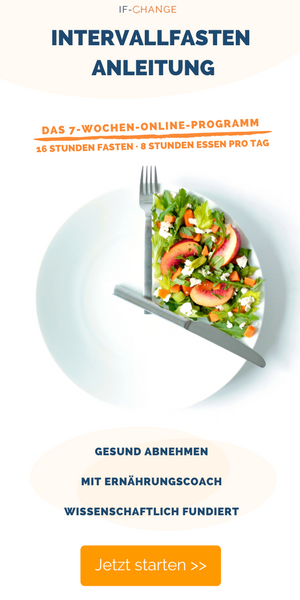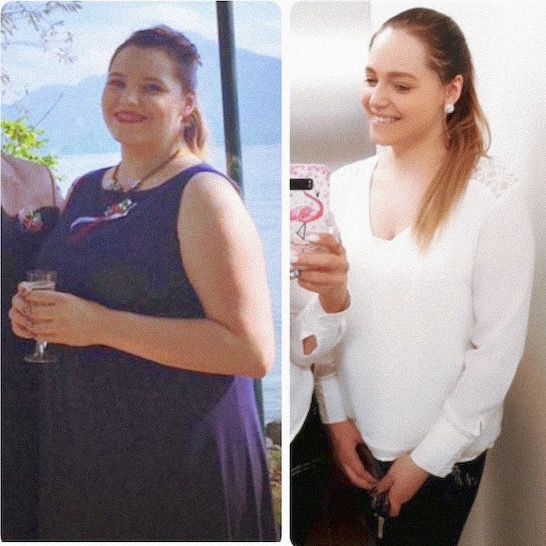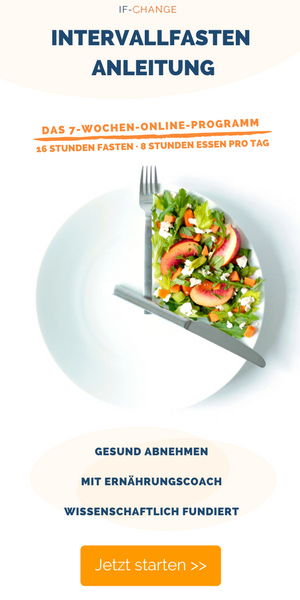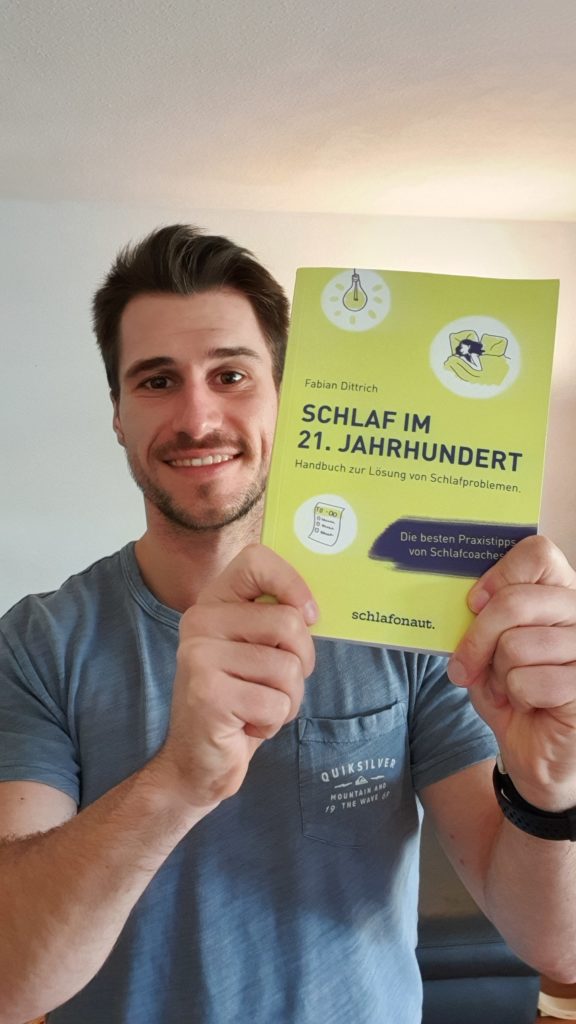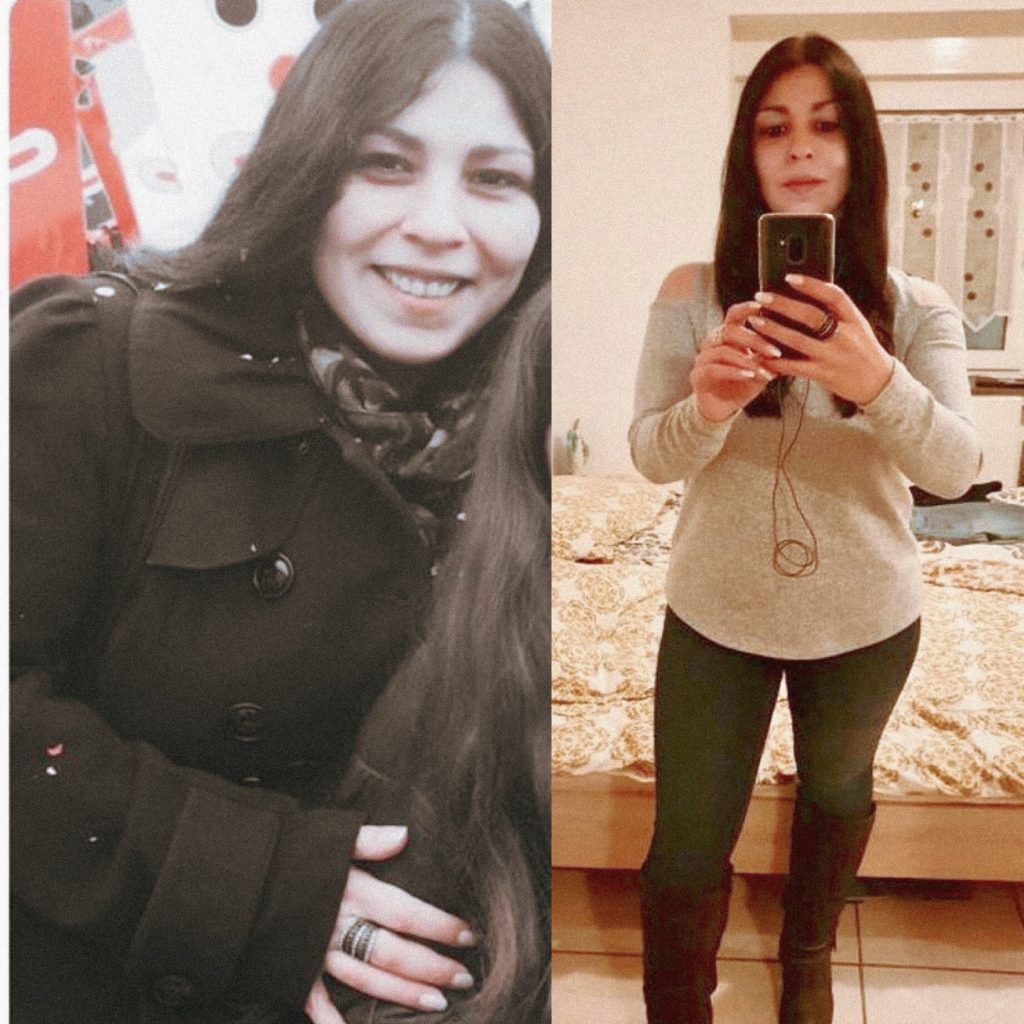
Food
The right nutrition
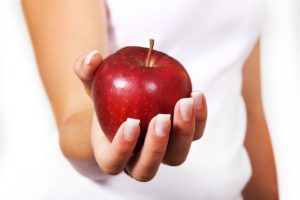
The selection of different diets is almost unmanageable. They all have one thing in common: they are tedious and exhausting - and they only work for a limited time, after which everything is more often the same again. You don't usually get healthier from them either. How you can still achieve your dream figure in 2020, keep it for a lifetime, and do it without an annoying diet, we'll tell you here!
With the turn of the year, the time of good intentions inevitably approaches again each time, and quite a few of them regularly plan to finally get "in shape" each year. This often means getting rid of a few or a few more superfluous pounds and tightening up those parts of the body that have lost their shape.
With losing weight and "shapen" it is however such a thing: Diets require a lot of staying power and an iron will over a considerable period of time, not all diets are thereby besides really healthy. Again and again the question comes up: "Can't you do without a diet? The short and concise answer to this question is: it definitely works. How, you will find out in the following.
Diets are nothing more than controlled malnutrition
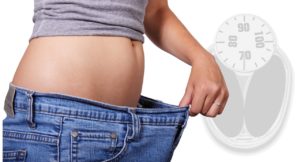
It is relatively unimportant what kind of diet you are on - the basic principle is always the same: you avoid certain groups of foods or limit the amounts of some foods, in calorie-reducing diets the amount of all foods you eat is the same. Thus the body (at least theoretically) gets into a state of undersupply and must fall back on its stored reserves to compensate for the deficiency.
This can work - not every diet produces the desired metabolic change for everyone. Each person is slightly different and our metabolism is extremely complex. For him, a whole variety of individual processes play a role, which are intertwined and which are a little differently developed depending on the individual metabolic situation of each person. So what works for one person does not necessarily have to have the same effects for all others.
Diets are certainly not pleasant - after all, it is a state of deficiency and your body will signal this to you: with attacks of ravenous hunger, with frustration, irritability and with the urgent desire to finally stop the constant hunger and get something sensible to eat. The dietary phase in classical diets is and remains a state of deficiency in any case, and your body will always protest against deficiency.
In addition, especially we Central Europeans should be a little careful with artificially induced deficiencies: despite the apparent abundance and over-indulgence, most people in our country have a serious lack of minerals, many also have a considerable lack of vitamins, the so important secondary plant substances are also missing. This is due to our usually not exactly natural diet. If we prescribe ourselves a malnutrition, we often intensify these already existing deficiencies significantly. Of course this is not healthy.
The smart way to lose weight - without a diet

If we gave our body exactly what it needs - and exactly the right amount, we would have no problem with overweight. That makes sense, doesn't it?
If it's that simple, why don't we just do it? And why does it somehow not seem to work? Well: what makes it so hard is that most of the time we actually have no idea what our body needs - and how much of it. If we can solve this, the problem practically takes care of itself. And forever.
There is indeed a way to do this - and it is much less difficult than you might think. But first we have to get used to a rather unpleasant fact:
Our body feeling is completely broken
We eat when we are actually thirsty, we very often let ourselves be seduced by food that is neither healthy for us nor natural in any way - and we very often eat far beyond our sense of hunger. We use food as a problem solver and as a consolation, we are constantly on the hunt for ever new and more unusual pleasures and often eat simply out of boredom or out of habit, because it is "mealtime". Hunger is our great enemy, which we fight long before it even shows itself - and we always take great care to have only enough food within reach.
These are all facts that can be scientifically proven without any problems and have already been proven many times. And they are all things that are completely unnatural and completely contrary to our entire biology. To believe that this has no consequences is extremely naive.
Actually our body would tell us that what we are doing is not very good for us. In fact, it would do so, if we hadn't already gotten used to skilfully ignoring all the signals of our body and forcing habits on us that will cause us harm in the long run. We have practiced this so well that the signals and messages of our body have long since faded away somewhere unheard and we no longer notice anything of them.
Of course you can undo this. All you have to do is pay attention to a few things and learn again to interpret the messages of your body correctly. We will approach this step by step in the next sections.
"Normal food"

Anyone who is a little overweight has probably heard the phrase "You don't need a diet, you just need to eat normally". Nice advice, thanks for your understanding, but what exactly is "normal"?
In our culture the "normal", i.e. the usual eating behavior is not normal. It is no coincidence that two thirds of all Germans today are overweight and many of the rest are still struggling with illnesses that can ultimately be attributed at least in part to an unsuitable diet. And if - as recently published - people in the country consume the same amount of chocolate as bread on average over the year, it is at least reasonable to suspect that the "usual" and "normal" is perhaps not the very best guideline.
In the course of such a critical examination we must also question whether everyone really has to eat copiously at least three times a day in order to stay alive. Or whether this is perhaps not simply "so common" in our culture.
If we seriously want to bring our weight back into the normal range without any diets, we have to be prepared to critically question the "usual" for once, and in one point or another perhaps find a better way for ourselves than "the usual", often referred to as "the normal" and then seen as "binding" for all equally.
To violate it, however, can be connected with a whole lot of inner resistance against it, not least because of the often pale incomprehension of the closer environment. In view of the current situation, however, we must be aware that doing "the usual" in most cases also brings the consequences that are widely accepted: Overweight and nutritional diseases.
So have the courage to find your own way, and occasionally with a smile to ignore what is usually considered "normal".
The crux of the matter: how much food do people need?
We have already briefly mentioned that eating copiously three times a day may not necessarily be the last word on the optimal amount of food. At least not for everyone. In our culture it is only common practice - this does not automatically mean that it is right and optimal for every single person in our latitudes.
Calories: The right guideline?

The first and earliest form of diets took the caloric value of food as a guideline for "enough" energy. The term "calorific value", which means calories, can be taken literally.
Do you know how to determine the calories of food? You take a certain amount of a food, throw it into an oven and burn it completely - and then measure the heat energy released during burning. These are then the calories, the calorific value of that food.
The theory behind this is that our body must somehow constantly maintain its body temperature of around 37 °C. This requires energy. This energy is generated by supplying the body with food, which it then burns internally and uses the energy it contains to generate heat. This is the so-called basal metabolic rate.
In addition, the contained energy is also used to supply our muscles when they have to move, as they also use a certain amount of energy for this purpose.
So far this is also true, all warm-blooded creatures do so. We generate the heat we need ourselves through the food we eat. (Crocodiles, for example, can be warmed up by the sun and always have the same temperature as their environment; when it gets cold, they can hardly move and also cool down internally, because they cannot generate any heat themselves. They are warm animals. Therefore they need much less food).
If you follow this theory, you could easily calculate how much energy a person of a certain weight uses at certain temperatures to keep the body temperature constant and to move around in a certain range. This is exactly what the calorie counting approach is based on.
Calorie counting works poorly in practice
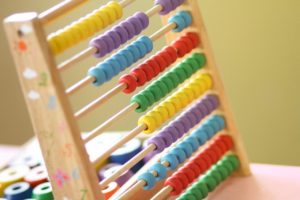
Unfortunately, the whole thing works much less well in practice than in theory. Numerous processes play a role in our heat balance, which ensure that our body temperature remains constant. The width of the blood vessels, the amount of blood that is pumped through them and the speed at which energy can be provided at all are also responsible for this.
This is actually highly complex. In addition, no one can say exactly whether the carrot you eat actually provides you with exactly 27.5 kcal of heat energy - that depends largely on how (well) you use it in the first place. The calorie calculation therefore provides you - if at all - only a very rough indication of the amount of food you need. Counting calories is very time-consuming - and it only gives you a very rough indication. To calculate that an average 70 kg person needs about 2,000 kcal per day plus the energy for exercise is a very rough estimate and ignores at least ten other important factors.
The common theory is: "If you eat less than you need, you lose weight". However, since we cannot say exactly how much we need, it is very difficult to determine how much "less" is then. There are people who can easily manage an 800 kcal diet, while others, even at 2,500 kcal per day, feel like they are permanently starving. You simply cannot reduce people to standard numerical values, we are simply all too different and our metabolism is far too complicated.
In addition to this, your body will get used to the amount of food you eat over a longer period of time and will be able to cope with it to a certain extent. This is very well possible over a wide range of calories, even permanently and without negative consequences. This shows even more how unreliable such guidelines are.
Find the right amount for your body
Calorie counting is tedious and time-consuming, and as we have just seen, highly uncertain. In principle, you can save yourself the trouble of using countless tables and a calculator - you have a very well-functioning calorie counter that is tailored to your individual needs already built in: your natural hunger feeling.
To be honest: When was the last time you were really hungry? So much so that your stomach was already queasy and your knees started to get dizzy? A long time ago? Or never at all?
If the latter applies to you and you do not know this feeling at all, you are in good company. This is the case for many people here. We have always eaten before, just to avoid getting hungry, because we believe that this will kill us. We buy a lot of food before a holiday because the stores are closed and we get nothing. As a precaution, we do everything possible to rule out any risk that we might feel hungry.
Of course this behavior is complete nonsense - almost everyone can easily go a whole week without solid food. Only after that it sometimes becomes slightly unpleasant if you are not used to it. If you have already done a fasting cure, you might know that. The risk of actually starving to death only begins after about 8 weeks.
Not after half a day. Nevertheless, panic over arising feelings of hunger always wins in our head and we behave accordingly - without even thinking about it. This is not meant to be a plea for fasting cures - it is just meant to put things into perspective. Yes, hunger is unpleasant. Actually the hunger feeling is however only at all the signal for the fact that you need now slowly something to eat. If the signal is missing, the body is still very well.
If you do everything in panic to avoid the emergence of any feeling of hunger right from the start, you will in most cases eat much more than you actually need. The emphasis here is actually on "significantly more", which often goes up to a multiple of what your body needs. For now, I would like to recommend an experience that you should definitely try:
Try to get away from your usual daily rhythm and just not eat anything. Observe when you really get hungry. For most people, this will be in the middle of the morning and late afternoon to evening, but depending on your personal daily rhythm, these can be quite different times.
Try to eat a snack only when you actually feel a distinct hunger. Just enough to make the hunger disappear completely. If you do this for just a few days, you will find that the quantities you usually eat after that have already decreased noticeably.
This is the effect when we start to listen more to our body again. This little exercise recalibrates our system, which estimates required amounts of food, and brings our estimates back to a meaningful, body-adapted level.
Eat slowly and consciously - The right eating behaviour

When we look at our eating habits, it is not only about the quantities we eat - but also about how we eat.
The reason for this is simple: In our stomach there are nerves that report to the brain when we have enough and our stomach is sufficiently filled.
The transmission of this message is one of the slowest reporting processes in our body - it can take up to 10 minutes before the "full signal" reaches our brain and is registered. If we eat very fast, we have shovelled a lot of food into ourselves during these 10 minutes, which we actually do not need any more.
If we gobble down food quickly and only very roughly chewed, our body also registers much less quickly whether we have absorbed all the nutrients we need at the moment. If food is only slightly chewed, it is very difficult for the body to analyze the taste of the food we have just eaten and to determine whether we should eat more.
The same is true when we are off our game when we eat: if you go through your annual reports, watch TV or maybe even drive a car, you can't concentrate much on your food - and on the signals your body is sending out. As a result, we fail to register many things that we should actually notice. The quality of the food also suffers - we perceive little or nothing of the taste and consistency of our food. It is then only simply as fast as possible the stomach again filled.
Eating slowly and consciously is the most important point if we want to reduce our weight and make our eating habits healthier again. Our body and our sense of taste needs time to analyze our food, to make the necessary enzymes for the respective food available in our digestive tract and to make some decisions about its utilization.
If we simply bombard our stomachs with food, many of these important processes cannot take place in an orderly fashion - the damage is done to ourselves: Digestive problems, constant tiredness and listlessness, overweight and no feeling at all whether the amount of food was already too much.
Consciousness experience: No more than 3 foods per meal

Our entire digestive system has to determine which foods are coming in, based on taste alone - and quickly provide the substances needed to break down the incoming food in an orderly fashion.
This is a considerable task - especially when you consider how many different foods we usually eat at a single meal. Ten or twenty different foods are not uncommon. (Think of a pizza: the bottom of the pizza is already made of flour, oil, salt, sugar and yeast, to which cheese and tomatoes are added, and then the whole topping, which may be ham, salami, tuna, artichokes or often a much larger number of things.
We will drink a coke and then have dessert and maybe a mixed salad with dressing. Your body has to taste all these things, sort them out and use them in an orderly fashion. That is an enormous achievement).
On top of all this, we seem to take a perverse pleasure in changing meals so that food tastes completely different from what it usually does - this is "interesting" and is considered a "pleasure". The actually sour yogurt thus becomes a sticky dessert, the salad suddenly tastes like walnut oil. For the body it is a medium catastrophe to want to analyze anything at all on the basis of taste. It learns from experience when we eat the same things over and over again, but in the end it remains an almost unsolvable task for digestion.
The whole thing goes so far that many people no longer know what yogurt actually tastes like when there is no artificial strawberry flavor. Or how a cucumber tastes. Or beet. This makes it quite difficult for the body to specifically ask for something by awakening certain "cravings" because it needs certain nutrients. To make this easier for him, it is very helpful to recalibrate our taste system once again and "relearn" the taste of unprocessed things (if we ever knew it at all), so that our body can specifically crave something and we can more specifically cover our nutrient needs again.
A little exercise can help you to achieve this again very quickly: you only need to limit the number of foods per meal considerably. It would be best to eat only three foods per meal so that your body can learn as quickly as possible, but even with five or six different foods in one meal, you usually get good results very quickly.
It is also important to chew well and slowly and to taste consciously what you are eating. The body can then once again associate the ingredients with the taste and in the future play out more "targeted" desires to your brain. Of course, you should follow these desires as much as possible. Just try it out for 1-2 weeks and take the opportunity to get to know as many different things as possible.
This not only benefits your digestion, it will also have a very positive effect on your eating habits in the future and can also reduce your food quantities in a very sustainable way, without you having the feeling of missing anything. On the contrary - your food will often taste much better and you will enjoy it much more intensively.
The digestion and disposal break
One point that we have not yet mentioned is the question of what actually comes after the meal. Actually quite clear: the body digests. In general, we pay little attention to this, because it happens automatically anyway. However, we should pay a little attention to this. Digestion is an enormously energy-consuming process that takes a long time.
Some time ago the so-called "intermittent fasting" came back into fashion as a diet method. Here you eat one day and fast the next. Purpose was to grant the body a "digestive break" and the opportunity to be able to dispose of all waste products, which result from the utilization of the food, in peace. Besides the alternating system (eat 1 day, fast 1 day) there are also different approaches, up to 2 days eating and 5 days fasting or vice versa. It is, as said, a trend - from which naturally everyone would like to profit with his own "infallible system", which he praises.
However, this "digestive pause" does not have to be as long as with all these systems to be effective. Our body basically has two primary "digestion windows", one at noon and one at midnight. If no new food is available, the body can devote itself entirely to eliminating the remaining pollutants. For this reason, many Buddhist monks, for example, do not eat anything after midday, so that during sleep at midnight all the waste products and leftovers can be processed and eliminated by morning.
In principle, it is sufficient to reduce your food quantity considerably during the afternoon to have the same effect. The evening milk soup in the former East Germany, which consists only of liquid, aims exactly in the same direction as the well-known wisdom "breakfast like a king, lunch like a citizen and dinner like a beggar". We have been able to do all this much better, especially with our bodies. Many things the old folk wisdom has understood much better than we do today - we are especially concerned with opulent enjoyment above all, including our health.
If you eat less in the afternoons and evenings, eat only easily digestible foods or soups if possible, or perhaps skip dinner altogether, you will most likely not only sleep much better and more restful and have more energy during the day, but your digestion will also thank you for it. If you are exercising, dinner is also a good time for the obligatory protein shake, which is liquid and usually quite easy to digest. The protein contained in the shake also provides a pleasant feeling of fullness, which lasts until you go to bed.
How much full is full?

With all the suggestions in the previous chapters, you may be moved by one question: "Won't I feel terribly hungry with all this? The short answer: No, you won't. None of these methods, except for the first one, where you consciously wait for the onset of a feeling of hunger.
It is however nevertheless time to occupy oneself briefly in thought with the fullness feeling. Usually we feel full when we have the best will in the world and can't get anything down. But "cardboard fullness" is not full - but clearly too much. Always waiting for this feeling of fullness and eating for so long is something we should really give up.
As you have heard before, our stomach is already pleasantly filled at 1.2 liters to 1.6 liters. Nevertheless, it can expand up to 2.5 l or even further if necessary, i.e. up to twice the optimal filling level. Only when this limit is also reached do we have a real "cardboard sate feeling".
The work of the stomach at this extreme filling level is only possible to a limited extent. The food can hardly be digested in an orderly fashion, there is not enough space and time - if necessary, something is stored (i.e. where you wear it on your body) because it is no longer usable in a hurry. Your digestion works at a chord, consumes most of the available energy in your body (that's why you feel so tired and lethargic after a sumptuous meal) and works itself to the bone.
In the optimal filling state, your digestive system can still keep up, can make use of what is to be recycled and produces significantly less waste material. All of this benefits you naturally.
If you compare the optimum with the maximum filling level of the stomach (1:2), you may realize where the well-known wisdom of the FDH (eat the half) cure comes from. It has been effective in the past and has always been the first answer to obesity in the vernacular. Half of "Pappsatt" is thus also anatomically quite meaningful.
It is only important that we ourselves first learn to evaluate our feelings differently. Waiting for the fact that we feel "cardboard full" and classify everything below as "still hungry" already pushes our stomach to its limits. "Sated" is always reached when we no longer feel hungry; in terms of quantity, this is very often actually almost exactly half the usual "cardboard satiety". It can take a while until the feeling changes habitually, to learn to recognize the difference clearly, but it is worth it in any case. You should definitely do that.
Don't let yourself be distracted

If you only eat less than usual, the sentence "But you must eat more! Or maybe even "Oh God, are you getting anorexic now?". Even if your environment notices that you chew much slower than them or longer, in quite a few cases this will be commented on accordingly. You should assume that. Don't let it upset you.
Eating is all about convention - most of the generations before us got by with significantly less food - including even those who could afford it. And eating fast or simply gobbling down food just a little consciously is also one of the usual things in our society. This does not mean that these things are necessarily right now - it just means that the majority of people do them out of habit or imitation.
If your amounts of food look "frighteningly small" to other people, it may well be because they are eating far too much themselves - much more than they actually need. And if they laugh at how slowly you eat, it may simply be because they no longer notice how quickly they gobble down their own food each time - without even considering whether they are already full.
Remember: you are about to find out how much you really need. It's all about your individual measurements. Someone else cannot judge that - even if they think they can. It is your food, your body - and in the end, your health. This is entirely up to you, and you can also be in company while eating.
Often people are almost forced by others to eat large quantities. They are laughed at when they "eat like a sparrow" or are teased with the idea that if you don't eat vigorously, you can't work properly either. These are stupid platitudes that have nothing to do with reality at all. Those who have 50 kg too much on their ribs can't have a strong grip either, but can only breathe loudly and puffing at the slightest effort.
It's basically the same situation as with alcohol - when the practiced drinking parties accuse you of not drinking enough or not drinking fast enough or not being drunk enough yet. It is just stupid. Nobody needs it and in the end it just causes harm. Don't be impressed by something like that.
What you need is not always what you want right now.
When you have implemented the suggestions in the first part, it will already be easy for you to clearly recognize what food your body really needs and what is good for you. After a lot of food you will have fewer cravings, but more often after others that are much more valuable for your body. This is quite naturally so and simply a progress on the way to a more body-fair and clearly healthier food.
However, we still like to "stumble" over some foods - we can hardly stop eating, regularly consume far too large quantities and simply can't get enough. For most people, this includes chips and chocolate, but also other foods.
The devilish 50 : 35 trap
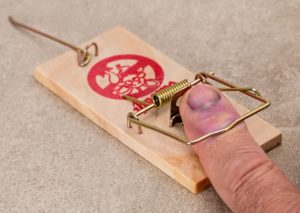
A few years ago, science put forward the theory that there are certain groups of foods that specifically make us lose control over the amounts we consume. According to the theory, these are foods in which carbohydrates and fat are in a ratio of about 50 % :35 %.
Science refers to the phenomenon that sets in after that with the threatening sounding word "hyperphagia" - but in German this simply means "to overeat". By the way, this is what mice did in the laboratory, just like us humans. Within a very short time, they not only ate about half of the total daily calorie requirement with these foods alone, but also ate a third more than usual with the rest of the food. Quite similar to what happens to humans with nibbles.
In addition to potato chips, most sweets and also chocolate belong to these "50 : 35 Foods", this also applies to nut nougat cream or peanut flips for example. The consequence of consuming such foods is always the same - loss of control. Very often exactly these foods are also enormously tempting and we often have quite a desire to eat exactly that.
If we look at the individual composition of our meals, it is quite possible that we might come across this fatal 50:35 recipe in other cases as well. In any case, it is advisable to take a closer look - and avoid these foods as far as possible. The ratio of carbohydrates to fats can usually be seen quickly anyway on the nutritional value label.
After the loss of control comes the hangover mood and deep regret for not being able to stand firm. We can spare ourselves that.
How much you eat is one thing - what you eat is another
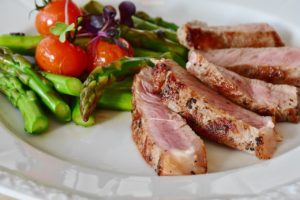
Well - now we know what we should better not eat. But this does not answer the question of what we should eat.
Our decade is thereby hardly shaped by anything else as much as by completely different nutrition theories: From Vegan to "Palaeo" everything has its followers, everything which does not fit then into the system, is "devil stuff" and kills one presumably directly next week.
Interestingly enough, however, both the meat-eating Paleo-followers still live just like the Veganer suffering from allegedly massive protein deficiency, and even the Frutarians (who eat almost only fruit) still jump around amazingly lively and fit in between. Which is clear evidence that all nutrition theories are exactly that, namely theories. Or better: world views.
There are always arguments, which speak for one or the other, but the final "truth of nutrition" certainly does not belong to any worldview. You can be fit and relatively healthy with any of these theories - or not. There are certainly also overweight Veganer, which have diabetes or Frutarier with heart cycle problems - although clearly less than in the total population. However, this is because they simply deal with their diet more intensely and consciously and do not simply stuff everything they come across thoughtlessly (there are exceptions even there).
So what helps is conscious selection and moderation. If you manage to listen to what is good for your body, what it wants and keep the amount of food within reasonable limits, you will almost always stay slim and fit all by yourself - no matter if you eat vegetables or game meat.
We don't need to talk about the quality of food here - it goes without saying that cheaply produced "fillers" are simply worse than natural food in as little processed form as possible. And no, the deep-dish pizza is not picked from trees and the cheese on it is usually not made of milk either. But that was clear anyway, wasn't it?
So: eat what you like, what you feel like and rely less on preconceived world views and more on what your body wants to have. This is the safest way to supply your body with what it really needs.

Wir möchten dir das beste Benutzererlebnis bieten und arbeiten hart und viel an unseren Quiz. Beantworte die Fragen wahrheitsgemäß, damit wir dir das beste Ergebnis liefern können.







